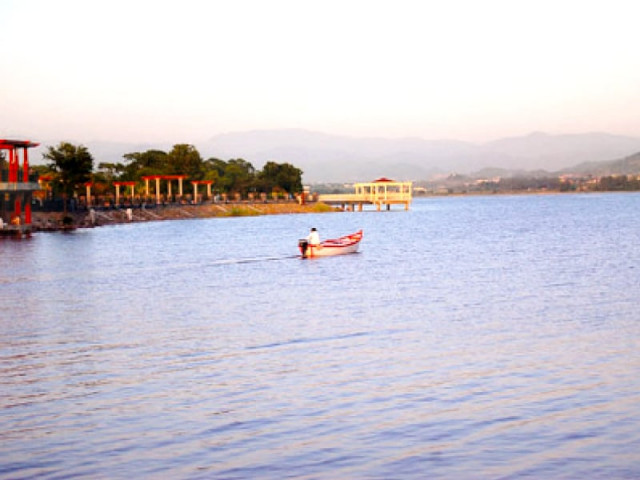Rawal Lake water quality: ‘Is it clean enough to drink?’
SC dismayed at lack of progress, EPAs directed to take action on housing societies dumping waste in lake.

Rawal Lake water quality: ‘Is it clean enough to drink?’
Reminding the cabinet secretary about a decision it took more than a year ago, the Supreme Court of Pakistan on Wednesday directed him to convene a meeting over the callous disposal of human and industrial waste in the Rawal Dam.
A three-member bench comprising Chief Justice (CJ) Iftikhar Muhammad Chaudhry, Justice Tariq Pervez and Justice Khilji Arif Hussain, was hearing a two-year-old suo motu notice that was taken on the request of a local resident Raza Ahmad Shah.
The court had issued similar directions to stakeholders, including the Capital Development Authority (CDA), Islamabad Capital Territory (ICT), Murree Tehsil Municipal Administration, Pakistan Environment Protection Agency and Water and Sanitation Agency, on Septemeber 3, 2010. The relevant authorities were asked to prepare a comprehensive report to solve the issue of dumping waste into the twin cities’ primary reservoir, however not much came out of that exercise.
The Punjab Environment Protection Department did issue notices to 12 major housing schemes around Rawal Lake to take immediate steps to address the matter, but did not follow up with “concrete actions”. The SC, which has been hearing the case periodically over the last two years, on Wednesday observed that no progress was made regarding compliance with its previous order.
When the Cabinet Division joint secretary told the court that some steps had been taken, but there is still need for more, the chief justice asked him to “tell in writing that the water is clean enough to drink”.
Chaudhry directed him to convene a meeting of stakeholders to prepare a comprehensive report in light of the court’s orders passed in 2010. He also directed Punjab Additional Advocate General Jawad Hassan to attend the meeting before adjourning the hearing for three weeks.
The SC had previously ordered the Pak-EPA and Punjab EPA directors-general to issue notices to the housing colonies responsible for laying sewage lines in the lake. Moreover, the law enforcing agencies were also directed to cooperate with the two EPAs.
The court had observed that “it seems non-cooperation is rampant between the three agencies principally responsible for the supply of clean drinking water to city… [they shift] responsibility on each other instead of coming out with concrete steps”.
The order stated, “It is the basic duty of all functionaries at the helm of affairs to ensure that the people of the city get clean drinking water, free of any contamination.”
Furthermore, the court took serious note of Punjab Additional Advocate General Jawad Hassan’s statement in which he said that there is no tribunal currently functional in the province and till there is relevant legislation, no progress report can be made on the issue. In responce, the court asked, “does that mean we will drink contaminated water till there is legislation”. Chief Justice Chaudhry observed that the assemblies are functional and legislation should not be an issue.
Published in The Express Tribune, March 29th, 2012.



















COMMENTS
Comments are moderated and generally will be posted if they are on-topic and not abusive.
For more information, please see our Comments FAQ